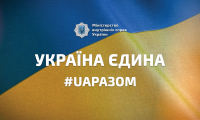
Sumy Branch of KhNUIA started its activity in September 1995 as a department of distance learning of the University of Internal Affairs in Sumy City. The first students were 56 military students who studied under the state order in the forensic specialization. The first recruitment took place in 2001. Today, Sumy branch carries out its educational activities at the first (bachelor's) and second (master's) levels of higher education in the specialties 081 “Law” and 262 “Law Enforcement Activity”. A powerful supply of training equipment has been created, considerable experience in the organization and provision of the educational process has been gained, and a qualified team of scientists and practical lecturers, ready for continuous communication, exchange of experience and cooperation has been formed, state-of-the-art learning technologies have been developed and put into practice for 25 years. In 2018, Sumy Center for Primary Vocational Training “Police Academy” in which police officers undergo primary vocational training and improve their skills in the specialty 5162 “Policeman (by specializations)” was attached to the branch. The educational process in Sumy branch is provided by a highly qualified team of scientific and pedagogical staff, including 20 Candidates of Sciences, Associate Professors; 3 Doctors of Sciences, Professors; 18 pedagogical staff. Specialists are trained by three Departments: the Department of Legal Disciplines, the Department of Social and Economic Science and the Department of Humanitarian Disciplines. The scientific and pedagogical staff and graduates of the branch take an active part in scientific, scientific and practical conferences, seminars, round tables and other scientific events. Lecturers of the branch are the authors of many textbooks, teaching and methodical manuals, scientific articles. The branch has a library with a total fund of more than 69 thousand copies of educational and methodical literature. Students and cadets of the branch spend interesting and meaningful extracurricular time: they attend cultural and artistic events, participate in sports sections, take an active part in the volunteer movement and public life.